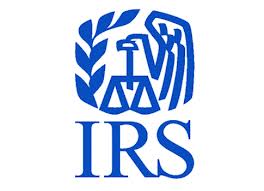Before you scramble to prepay the tax bill on your property, verify that the deduction is allowed by the IRS.
The IRS Tax Property has stated that not every taxpayer can prepay his or her property tax bill.
-Before the changes take effect, taxpayers can perform year-end tax actions like prepaying the property taxes for this year.
-The IRS has prepared guidelines to assist taxpayers to establish if they are allowed to make a deduction on the prepayment of their property tax bill for 2018.
The hugely significant Republican tax bill has been passed and it was signed into law by President Donald Trump just before Christmas.

A lot of taxpayers are scrambling to pay one specific deduction before the year closes: their property tax bill for 2018. The current tax law allows you to deduct the taxes that you pay to the state and local government- for instance, sales, income and property taxes. However, the new tax law limits the deduction to $10,000 for sales tax, state and local income taxes or property taxes.
If you are a homeowner and your property taxes exceed $10,000 and you are not under the alternative minimum tax, you can save some money if you pay the property tax bill for next year by Sunday, when the new law becomes effective, provided that your local authority takes it.
But the IRS has explained that for the deduction to be allowed, the property taxes for 2018 that were paid in 2017 should have been included in the assessment for 2017. According to the IRS, this means that just making a prepayment for the expected property tax bill cannot be a deductible on your tax return for 2017.

According to the tax experts from Tax Audit, a company that provides audit defense services, if you deduct the full amount of the 2017 property tax bill, you can realize an even bigger tax benefit in case your tax rate, based on the new plan, reduces next year.
Explaining property taxes
Basically, property taxes are the taxes that you pay on the property you own.
There are two types of property taxes, depending on the mobility of the property:
1. Real estate tax-for immovable property, for example, land or houses.
2. Personal property tax-for movable property, for example, a plane or recreational vehicle (RV).
You are required to itemize your deductions in order to get a property-tax reduction
What is the procedure when paying property taxes?
The payment of property taxes is carried out at the local level. Therefore in order to make your payment early, enquire from your county government office on how to do it.
For instance, the page that provides information about property taxes on the Department of Finance, New York City government’s website describes how the taxpayer can pay by mail, electronically or personally at one of its business centers.
Remember that if you are a homeowner, your mortgage provider can pay your property taxes through an escrow account.
Sadly, prepayment of state and local income taxes (SALT) has been forbidden.
Initially, we advised that it might be prudent for certain taxpayers to make prepayments for their 2018 state and local income taxes in 2017 so they can also maximize that deduction.



